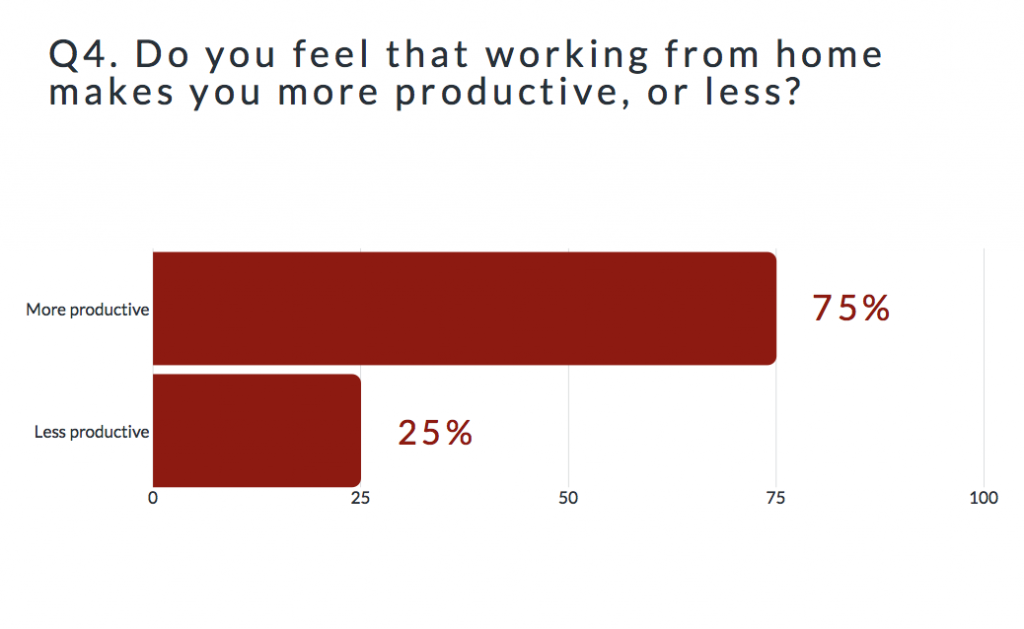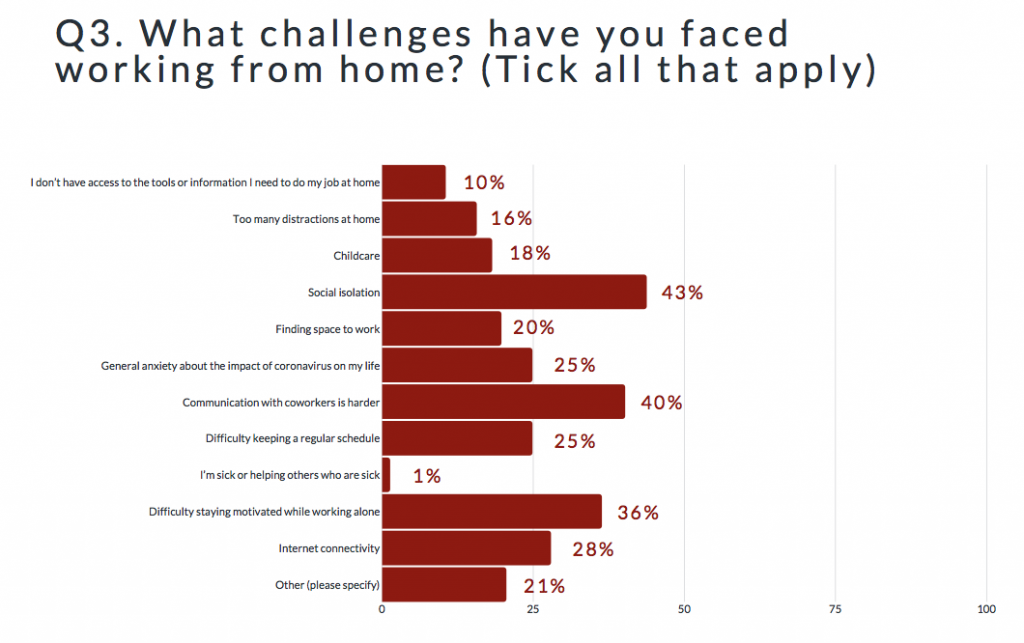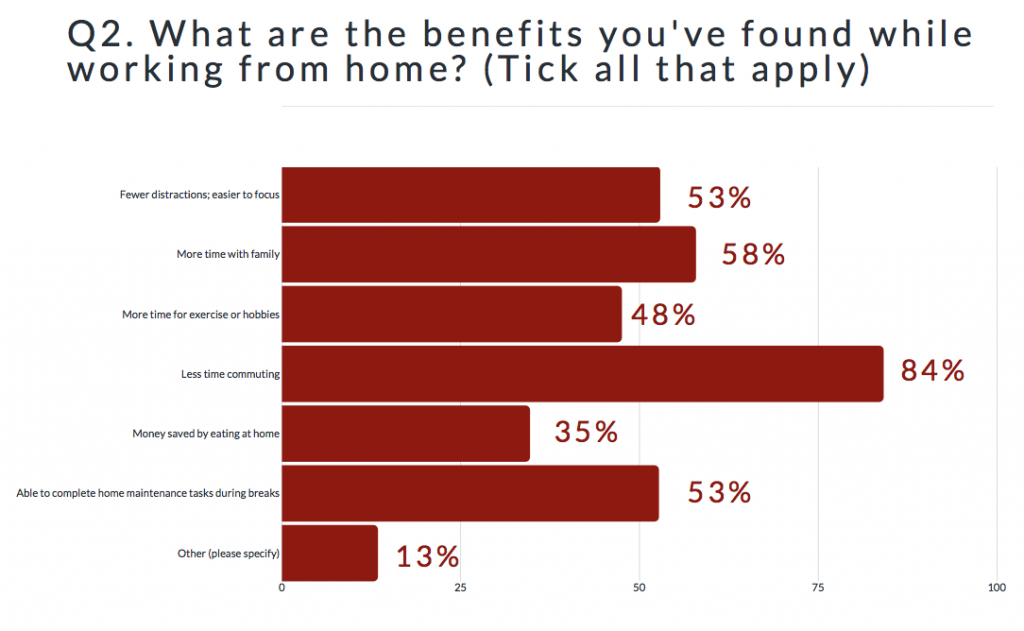I’m really interested in the way that work has changed over the past six weeks as a result of the Coronavirus pandemic.
With a huge percentage of the workforce quickly making the shift to working from home, we’ve had to quickly adapt to a new way of working, new ways of communicating and new ways of managing our time.
You may be finding that working from home suits you: you might find it easier to concentrate at home, with more time for family and less time spent on your commute. On the other hand, you could be missing the social aspect of the office, or struggling with distractions at home.
As we look towards an easing of lockdown measures, I think it is important we identify the positive lessons we can take from this period of flexible working. I’m not suggesting that everyone should be working from home all the time – but that offering flexible and remote working as an option makes for a happier, more satisfied and less stressed workforce. The old system wasn’t perfect, so why return to it? If there are ways we can find a better balance in our lives through flexible working, shouldn’t we – as individuals and as employers – explore those?
The results are in
Last week, I ran a survey asking questions about flexible working: the good, the bad, and how it’s going to change the way respondents work. The results were really interesting. Overall, respondents found that working from home made them more productive, and had a positive experience:
- 75% found that they were more productive working from home
- 78% felt partially or completely satisfied with the new way of working
- 63% felt more motivated to start their day, compared to their usual way of working

What challenges do we face while working from home?
The most common challenges among the people surveyed were:
- Social isolation (43% of respondents)
- Finding communicating with coworkers more difficult (40%)
- Difficulty staying motivated while working alone (36%)
To make flexible working a viable option, it’s important we listen to and address these concerns. When managing a team remotely, it’s important that more attention than ever is paid to connecting with employees, whether that’s a short virtual coffee break or – once social distancing measures are safely relaxed – making time to catch up in the real world.

What are the benefits we get from remote working?
The most common benefit of remote working was clear: 84% of respondents enjoyed spending less time commuting. Other common benefits included:
- More time with family (58%)
- Fewer distractions (53%)
- Ability to complete home maintenance tasks (like tidying up or laundry) during work breaks (53%)
- More time for exercise or hobbies (48%)
Several respondents commented that they felt calmer and more relaxed while working from home, as they were able to better balance home chores, and spent less time travelling and rushing around.

Other notable results
A high percentage of respondents kept to a regular working schedule while working at home; this may go some way to allay fears that unmonitored employees will lose focus. A move to remote working will require an adjustment in the way we measure ‘work’: a shift away from presenteeism, requiring staff to be present 9-5, Monday to Friday, towards an emphasis on the quality of work produced, productivity and efficiency.
- 85% kept to a regular working schedule at home every day or most days
- 75% have a dedicated workspace at home
How many of us are really going to make changes to the way we work?
The answer to this question was almost unanimous: only 7% of respondents are looking forward to returning to the same work set-up as before.
- 53% will make some changes to the way they work
- 7% are going to make major changes to the way they work
- The remaining 33% found the question didn’t apply to them (for example, employees who don’t have a choice in the way they work)
The key thing to remember here is that, although the practical, logistical elements are important to consider when planning a change to a more flexible way of working, the psychological and emotional elements are just as, if not more important to consider.
For some people, work is their safe place and the thought of having to work from home indefinitely leaves them with a feeling of dread.
So it’s not just a case of supplying everyone with a laptop, a desk and an ergonomic chair, we need to consider the wider implications of making the change – how we can meet employee’s needs for social interaction and our duty of care for their mental health as well as making sure they are rewarded, skilled and motivated.
Of course this is all relevant in a non-flexible workforce so it’s not too difficult to do, we just need to think about it, be creative and innovative in how we transfer this to a more flexible way of working.
Need help managing your team remotely?
If you’d like to learn more, you can view the entire survey on the Resources page on my website.
If you are currently managing a team that’s working remotely, or you work for yourself and would like some help staying motivated, feel free to contact me to find out how I can help, whether that’s through coaching, online courses, or tailored training programmes for your team.
We can help the Senior Management team develop a strategy for moving to a more flexible approach to working, help you to manage a flexible team and help you to manage your time more effectively, be more productive and improve your work life balance while working remotely. So, if you’re thinking of creating a more flexible and higher performing workforce, get in touch.
